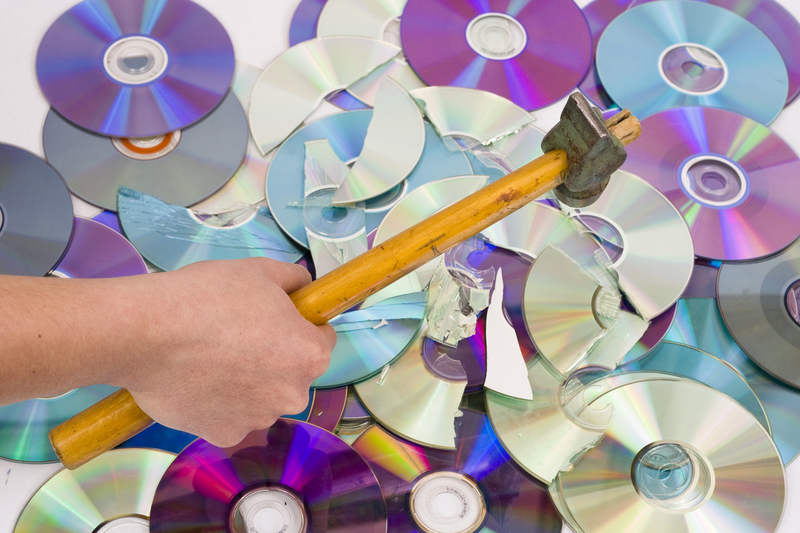Empower Your Home Recycling with These Top Techniques
Are you looking to make a real difference in the environment, starting right at your doorstep? Home recycling is one of the most effective ways to reduce waste, conserve natural resources, and create a healthier planet for future generations. But, what does it really take to empower your home recycling practices? This in-depth guide explores the most innovative and practical techniques to transform your household into a sustainability champion. Discover actionable tips, expert insights, and the latest trends in recycling for homes. Let's dive in!

Why Empowering Your Home Recycling Matters
The need for robust recycling programs has never been greater. Our world is awash with plastic, metal, paper, and electronic waste that strains the environment. Empowering your household recycling does more than reduce landfill overload; it saves energy, helps wildlife, and shrinks your carbon footprint.
- Reduces landfill waste: Proper sorting ensures more items are recycled instead of sent to landfills.
- Conserves resources: Recycling conserves raw materials and reduces the need for new production.
- Saves energy: It takes less energy to recycle materials than to produce new ones from scratch.
- Combats climate change: Recycling lessens greenhouse gas emissions associated with waste disposal.
- Builds community: When you recycle, you inspire others to do the same, fostering a culture of environmental stewardship.
Let's explore how you can empower home recycling efforts and set a standard for your neighborhood.
Top Techniques to Maximize Home Recycling
1. Understand What Can and Cannot Be Recycled
Knowledge is your first tool. Many households unknowingly contaminate their recycling bins with non-recyclables, which can send entire batches to the landfill. Take a few minutes to research your local recycling program's guidelines or visit their website for a clear list.
- Most programs ACCEPT: Cardboard, paper, rigid plastics (#1 and #2), aluminum cans, glass bottles and jars.
- Most programs REJECT: Plastic bags, greasy pizza boxes, polystyrene foam (Styrofoam), electronics, and certain plastics.
When in doubt, remember this motto: When unsure, leave it out. Reducing contamination is the first step in effective home recycling.
2. Set Up a Smart Home Recycling Station
One of the best strategies to improve your household recycling is to organize your space for success. Designate a specific area in your kitchen, garage, or utility room for recycling bins. Label them clearly for paper, plastics, metals, and glass to minimize errors and encourage your family to participate.
- Pro tip: Use different colored bins or stickers for children to recognize quickly.
- Keep the recycling station accessible, visible, and easy to clean.
Consider adding a small chart or infographic about what goes in each bin. This extra step will empower everyone at home to recycle properly.
3. Clean and Dry Before Recycling
A common oversight is placing dirty containers or wet, food-soaked paper into recycling. Even small amounts of residue can spoil entire recycling batches.
- Always rinse cans, bottles, and jars before placing them in your bin.
- Let recyclables dry before adding them to prevent mold.
This small habit drastically increases the chance that your items get successfully recycled at the facility.
4. Master the Art of Composting
Empowering your home recycling isn't just about plastics and papers--organic waste counts too! Kitchen scraps, coffee grounds, eggshells, and yard waste are perfect for composting, diverting them from landfill and creating rich soil for your garden.
- Start with a small indoor compost bin for vegetable peels and fruit scraps.
- Consider an outdoor compost pile or a tumbling composter for yard clippings and larger loads.
Composting is an essential addition to your green home recycling habits, reducing methane emissions and improving soil health.
5. Repurpose and Reuse Before Recycling
Before tossing items in the bin, ask yourself: Can this be reused?
- Old glass jars make excellent storage containers or vases.
- Cardboard boxes can be reused for moving, storage, or creative kids' projects.
- Torn t-shirts and fabrics are perfect as cleaning rags.
Being resourceful stretches the life of items, further reducing waste and bolstering your empowered home recycling initiative.
6. Properly Dispose of E-Waste and Hazardous Materials
Electronics (phones, computers, batteries) and hazardous materials (paints, chemicals, fluorescent bulbs) don't belong in regular recycling. These items contain toxins that can harm workers and the environment if not handled correctly.
- Search for local e-waste drop-off events or municipal facilities.
- Some retailers offer battery and electronics recycling programs.
- Contact your city waste department for hazardous material disposal dates and locations.
This conscientious step further refines your empowered home recycling process and keeps your community safe.
7. Buy Recycled and Recyclable Products
To close the recycling loop, opt for products made from recycled content and those that can be recycled again. Look for packaging and household goods marked with recycled symbols or sustainability certifications.
- Paper goods: Printer paper, napkins, and paper towels made from post-consumer waste.
- Plastic products: Storage bins, gardening items, and containers with clear recycling labels.
- Eco-friendly alternatives: Choose reusable over single-use whenever possible.
Making smart purchasing decisions strengthens the demand for recycled materials and reinforces the value of your household recycling efforts.
Advanced Home Recycling Techniques for Sustainability Enthusiasts
Ready to take your skills up a notch? Empowering your home recycling means embracing new strategies and tools to boost results.
Embrace Smart Technology
Today's smart recycle bins can automatically sort waste and notify you when pickups are due. Smart home apps track your recycling output and provide tips for improvements.
- Try a smart kitchen bin that sorts recyclables and compostables for you.
- Utilize apps like iRecycle or Recycle Coach to stay updated on recycling rules and reminders.
Join Community Recycling Programs
Community recycling initiatives like Terracycle or local buyback programs accept items your curbside service might not, such as beauty product packaging, snack bags, and clothing.
- Set up a collection point in your home for "hard-to-recycle" items and bring them to designated drop-offs monthly.
- Invite neighbors to collaborate and expand the impact.
Educate & Involve the Family
Empowered recycling is a family affair. Teach children the value of recycling through fun, age-appropriate activities, such as:
- Creating DIY crafts from recyclables
- Sorting games with household items
- Participating in local clean-up events
You'll nurture eco-conscious habits that last a lifetime.
Overcoming Common Home Recycling Challenges
Even the most motivated recyclers run into obstacles. Here's how to empower your home recycling program despite the challenges:
Lack of Local Recycling Facilities
- Seek out drop-off sites, community centers, or special curbside events.
- Partner with local environmental groups to advocate for expanded services.
Confusing or Changing Recycling Rules
- Bookmark and regularly check your municipal waste website for updates.
- Post a family-friendly cheat sheet near your recycling station.
Limited Space
- Use stackable containers or compact bins that fit in tight spots.
- Combine composting, recycling, and waste baskets for streamlined organization.
Lack of Engagement
- Turn recycling into a game or family competition.
- Celebrate milestones--like reducing landfill waste--for extra motivation.
The Future of Home Recycling: Innovations and Trends
Home recycling practices are becoming smarter and easier thanks to rapid innovation. The next wave of household recycling will likely include:
- Artificial intelligence: Machines that automatically detect and sort various materials.
- Biodegradable packaging: Reducing reliance on plastics and simplifying composting.
- Zero-waste initiatives: Neighborhoods striving to eliminate waste through reuse, repair, and recycling.
- Incentive programs: Municipalities rewarding households for high recycling participation rates.
Stay ahead of the curve by embracing these empowering trends in your own home.

Quick Checklist: The Empowered Home Recycler's Toolkit
- Labeled bins: For each type of recyclable
- Compost container: For food and yard waste
- Recycling cheat sheet: Guideline reminder for all family members
- Collection box for e-waste: For safe disposal of electronics and batteries
- Reusable bags and containers: For shopping and storage needs
- Local recycling directory: For special drop-offs and events
Having these tools on hand will ensure your home recycling empowerment journey stays on track and your household reaps maximum benefits.
Conclusion: Begin Your Empowered Recycling Journey Today
Transforming your house into a model of sustainability starts with simple but powerful recycling improvements. By following the top empowered home recycling techniques outlined in this article, you'll reduce waste, save resources, and inspire others to join you in building a greener future. Remember, small changes made consistently lead to meaningful environmental impact--and every recycled can or repurposed jar adds up!
So, start today. Elevate your home recycling practices, involve your family, and celebrate every sustainable choice. A cleaner, healthier planet is within our grasp--empower your home recycling now, and be the change your community needs.
Let's all work together to make recycling at home an empowered, effective, and enjoyable part of daily life!